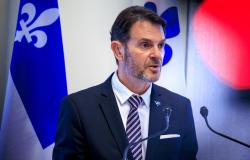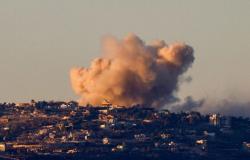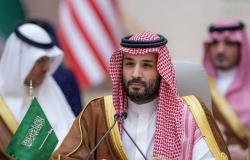– Advertisement –
Spanish Foreign Minister José Manuel Albares said his country had stopped all arms exports to Israel since October 2023. According to his remarks relayed by “Russia Today”, no new export permits have been granted , and Madrid actively ensures that there are no illegal arms sales. Albares also confirmed that Spain prohibits ships carrying weapons destined for Israel from docking in its ports. This policy reflects a clear desire to reduce tensions in a region already marked by decades of conflict.
Albares said the Middle East does not need more weapons, but peace solutions. The move is part of a broader Spanish strategy to play an active role in promoting stability and dialogue while avoiding contributing to military escalation in the region.
Support for Lebanon and the government’s role in implementing international law
Concerning Lebanon, the minister stressed that support for the role of the Lebanese government and the army is essential to maintain internal stability and fully implement United Nations Security Council Resolution 1701. This resolution, adopted in 2006, aims to end hostilities between Israel and Hezbollah, while strengthening the control of the Lebanese state over its territory, particularly in the south of the country. Albares welcomed recent efforts to achieve a ceasefire in Lebanon, saying they represent a positive step that should be replicated in other regions, including Gaza.
Support for the Lebanese army is seen as a key element to avoid destabilization of the country, already weakened by a deep economic and political crisis. According to Albares, Lebanon remains a strategic pillar in maintaining the fragile balance in the Middle East.
The humanitarian crisis in Gaza and the essential role of UNRWA
Albares also insisted on the crucial role ofUNRWA (United Nations Agency for Palestinian Refugees) in providing humanitarian aid to the people of Gaza. More than two million people in the Gaza Strip depend on the essential services provided by this agency. The Spanish minister affirmed that there is no viable alternative to UNRWA and that its dissolution or weakening would have disastrous consequences for stability in the region.
The international community, according to him, must assume its responsibilities and continue to finance the agency, which often faces funding crises. Albares also called for intensified efforts to achieve a lasting ceasefire in Gaza, stressing that the current situation cannot continue without causing more suffering and loss of life.
Spain’s commitment to peace in the region
These statements come in a context of increased tensions in the Middle East, marked by ongoing armed conflicts in Lebanon and Gaza. By adopting a clear position against the militarization of these conflicts, Spain seeks to promote diplomatic solutions and strengthen the role of international institutions.
Spain has long been a quiet but influential player in Middle Eastern affairs. His decision not to sell arms to Israel, combined with his support for the Lebanese army and UNRWA, sends a strong message about the importance of prioritizing peace and reconstruction efforts.
The regional context: between military tensions and political instability
Albares’ recent statements come as the region faces multiple crises. In Lebanon, the fragile ceasefire between Israel and Hezbollah remains under pressure, with sporadic violations reported from both sides. Furthermore, Lebanon’s disastrous economic situation is exacerbating social tensions and fueling fears of a total collapse of the state.
In southern Lebanon, Resolution 1701 remains an essential framework for reducing tensions, but its full implementation is far from being achieved. The international forces of UNIFIL (United Nations Interim Force in Lebanon) continue to play a mediating role, but they face increasing challenges due to mistrust between the parties involved.
In Gaza, the humanitarian crisis is reaching unprecedented levels. The Israeli blockade, combined with recurring military strikes and a lack of funding for civilian infrastructure, has left residents in a desperate situation. UNRWA is often the only source of support for the most vulnerable populations, which explains Albares’ emphasis on its importance.
A strategy based on multilateralism
The Spanish minister also highlighted the importance of multilateralism in resolving crises in the Middle East. Spain calls for a more active role for the United Nations, the European Union and other international actors to revive peace processes. This approach contrasts with that of certain countries which favor unilateral actions or military alliances in the region.
Albares called on European partners to adopt coherent and unified policies to respond to the challenges of the Middle East. He also stressed the importance of maintaining an open dialogue with all parties, including those considered adversaries, in order to find lasting solutions.
– Advertisement –





